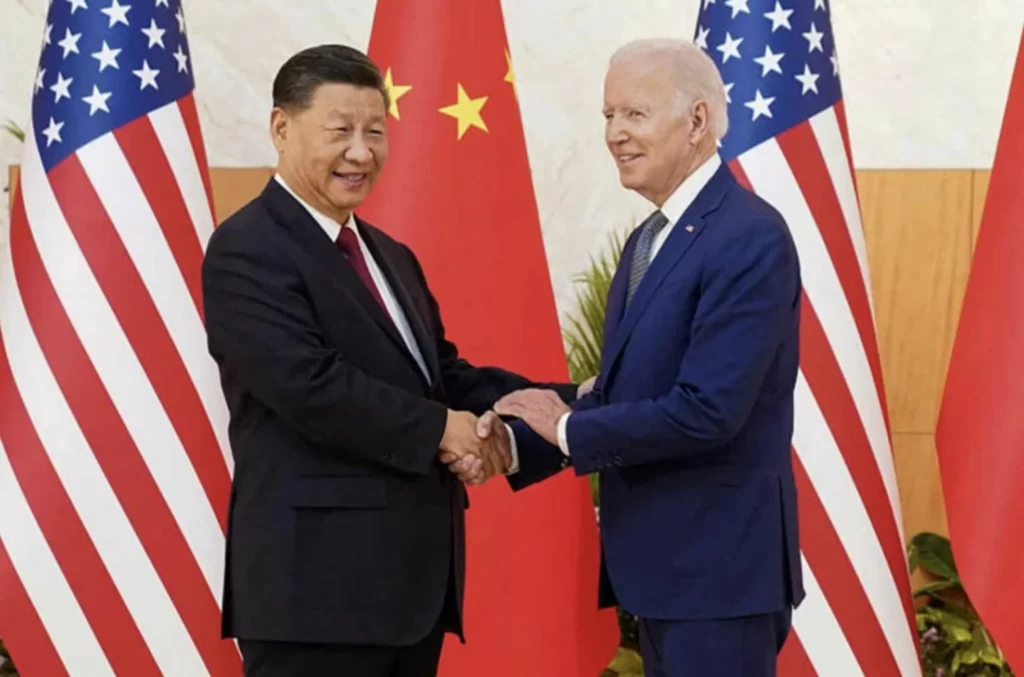The Thai government is confronted with the challenge of sustaining a balanced foreign policy in the face of escalating tensions between the United States and China. Prime Minister Srettha Thavisin, fresh from his appointment, embarked on his maiden foreign journey to New York where he is presently participating in the 78 Session of the United Nations General Assembly (UNGA78) and other related meetings due to conclude today.
PM Srettha engaged in dialogues with national leaders, international organisation chiefs, and influential figures at both bilateral and multilateral levels. Among those he met were global leading companies’ executives like Tesla’s CEO Elon Musk, discussing potential investment opportunities in Thailand. Other executives were from companies such as Microsoft, BlackRock, Google, Goldman Sachs, and Estee Lauder.
Upon his return from the US, the Thai prime minister anticipates visiting China in the latter part of the upcoming month. These trips to both countries offer a glimpse into how the current government intends to manoeuvre its foreign policy to attain equilibrium in its relations with China and the US.
Foreign Affairs Minister Parnpree Bahiddha-Nukara underscored the significance of the economy, security, and technology when outlining policy for officials at the Foreign Ministry. Bahiddha-Nukara is planning a meeting in Thailand, inviting Thai ambassadors from foreign countries, expressing confidence that under this government’s guidance, Thailand will regain a more prominent global role.
Panitan Wattanayagorn, an expert in security and international relations, stated to the Bangkok Post that the foreign affairs policy statement, unveiled in Parliament on September 11, bears striking similarity to previous governments’ policies. However, how the new government will negotiate a resolution to the Myanmar crisis is yet to be seen.
Myanmar conflict
Panitan suggested that Thailand should maintain neutrality, as the previous government had already initiated dialogues with all factions involved in the Myanmar conflict. Panitan also advised that Thailand should rebalance towards the US as the American economy is on an upswing. He highlighted the necessity to tackle its human trafficking issues to enhance Thailand’s rating in the US’s Trafficking In Persons Report.
Conversely, regarding relations with China, Pheu Thai lacks clear details on how to approach a foreign policy towards the country, said Wattanayagorn. He further mentioned the potential misconceptions about maintaining a balanced relationship with such superpowers, suggesting that Thailand may need to distance itself from both China and the US on certain issues and align with them on others, such as tourism.
The new government’s foreign policy offers hope, but it is yet to materialise into anything substantial, Panitan concluded. A lecturer at Chulalongkorn University’s faculty of political science Anekchai Rueangrattanakorn, stated that the government aims to enhance national income through proactive economic diplomacy with both existing partners such as the European Union and the Middle East, and new markets like India, Africa, and South America.
Thailand neutrality
He also highlighted the importance of Thailand’s neutrality between the two superpowers, China and the United States, and ASEAN’s centrality and neutrality. When dealing with superpowers, Thailand should position itself strategically to reap the maximum benefits. National interests are of primary importance, Anekchai reiterated.
A lecturer from Naraesuan University Social Science Faculty Oratai Soparat, added that the new government’s foreign affairs policy should also focus on security along the western and southern borders of Thailand. She also stressed the need for legitimacy building through respecting democratic values and international norms.
Supisarn Bhakdinarinath, deputy leader of the Move Forward Party, proposed that the new government should promote Thailand’s soft power such as Thai boxing, Thai food and local products, as well as new tourist spots and cultural World Heritage sites to attract more foreign tourists.
It now remains to be seen what the 61-year-old prime minister will achieve after attending the UNGA78 and when the new government will intensify efforts to pursue its foreign policy. The National Security Council must also be consulted on issues related to maintaining a balance between the US and China, Bangkok Post reported.
Source: THAIGER


